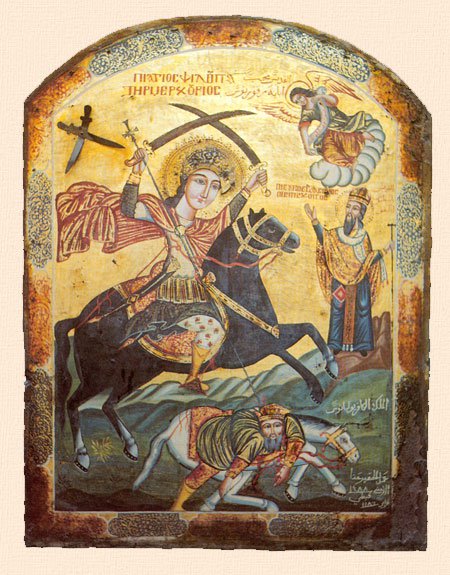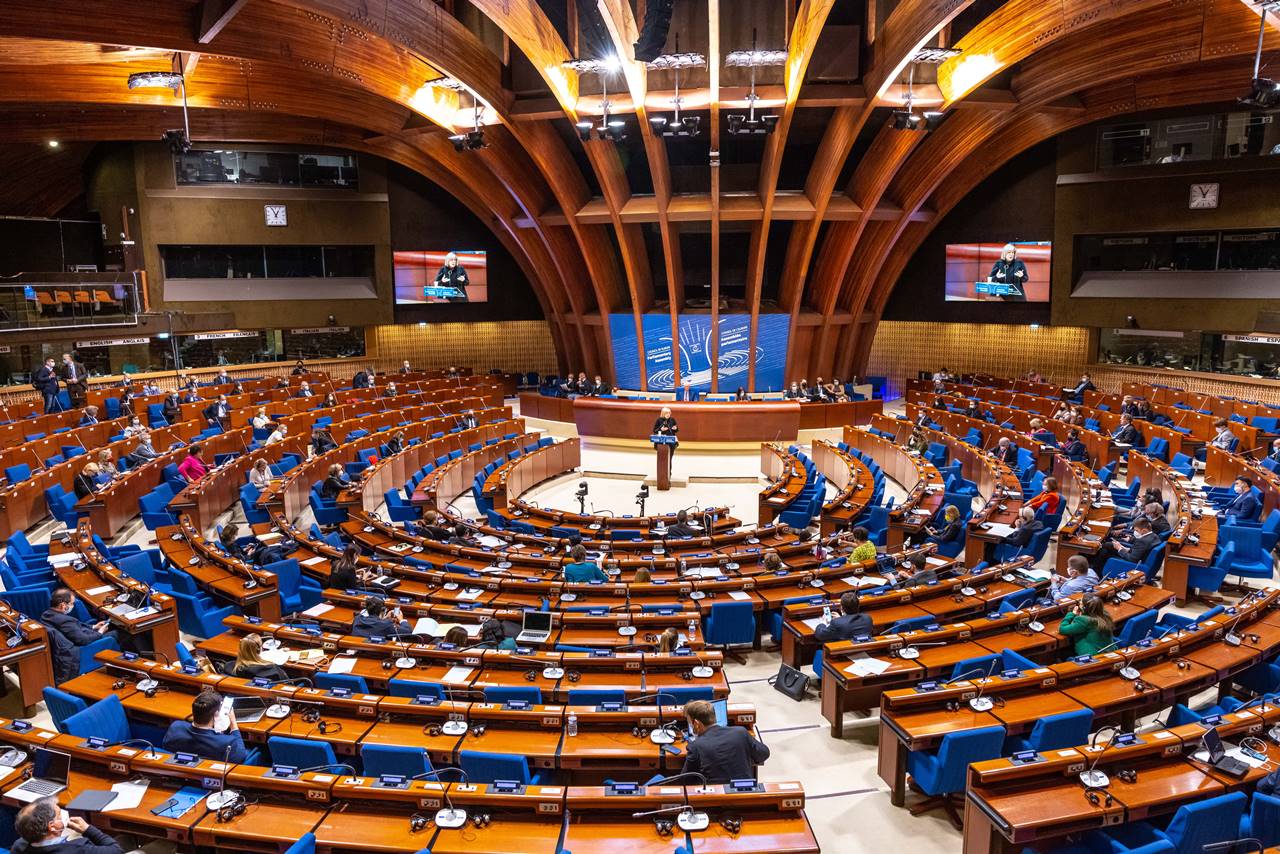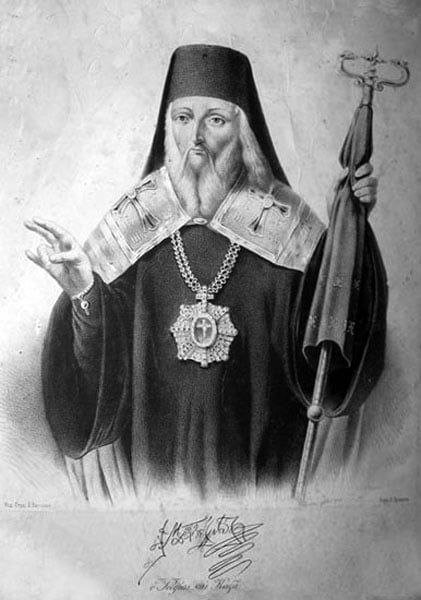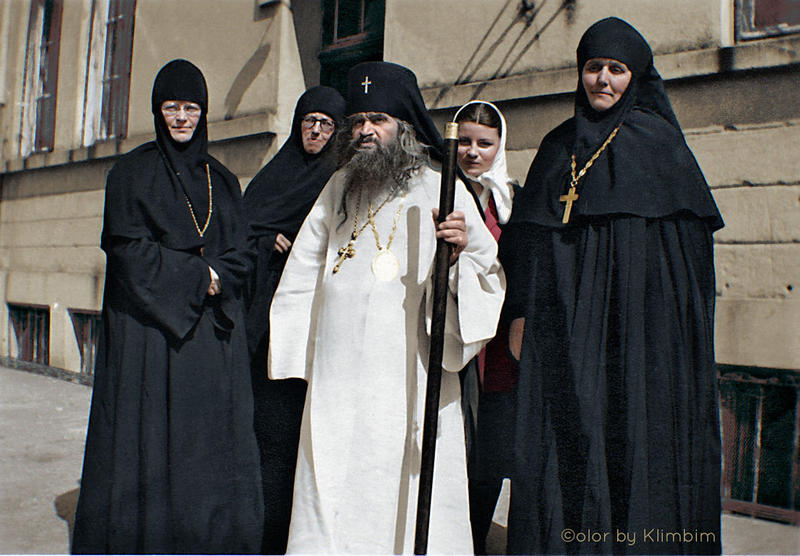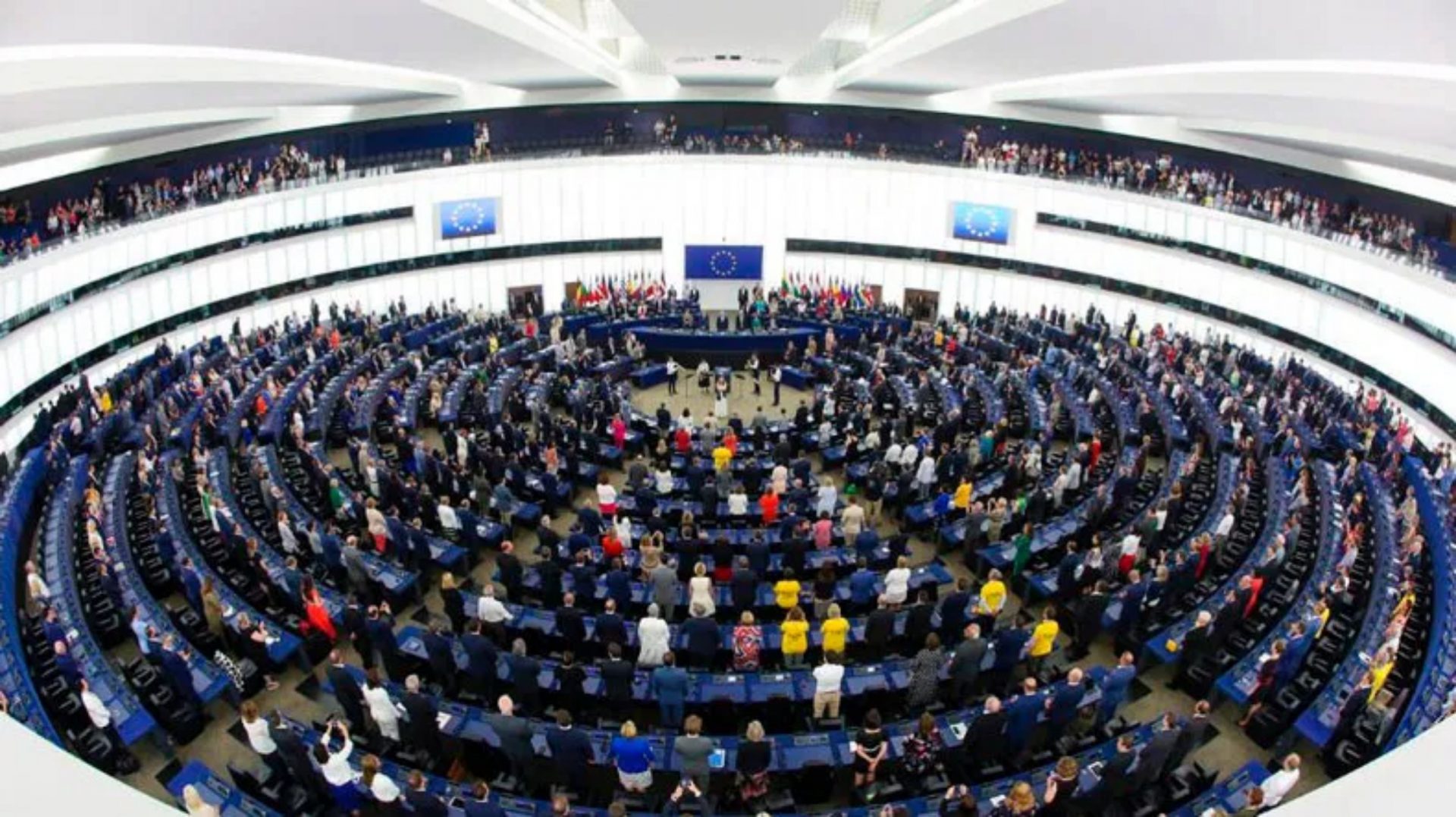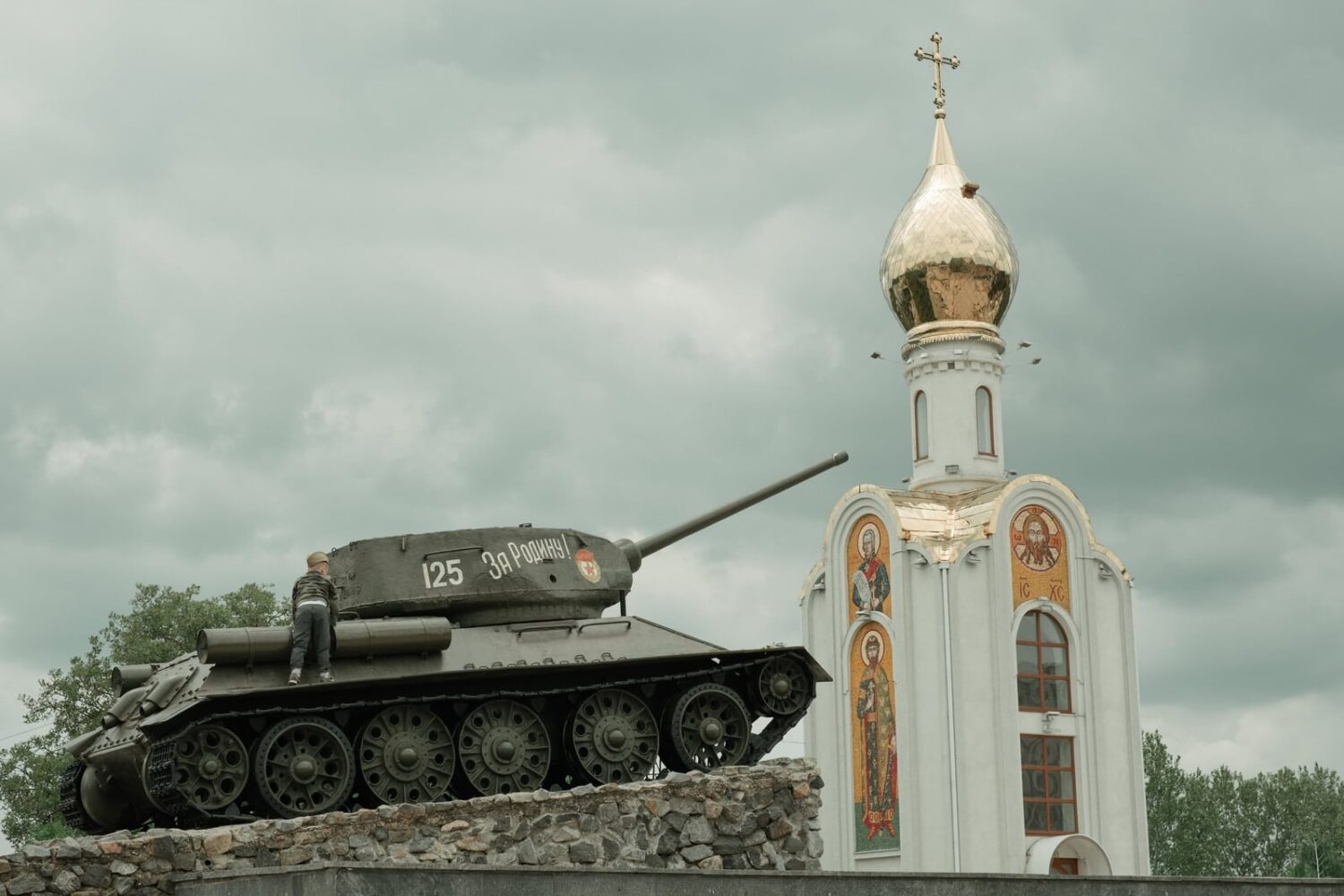Author: D.S. Biryukov
Arianism is the first current in the mainstream of Christian thought, recognized as heresy and became the state religion in the Roman Empire. Arianism is undeniably the largest and largest of the movements within Christendom since the beginning of Christianity that have been recognized as heretical. Therefore, subsequent generations of Christian writers understood Arianism as a heresy par excellence, and this testifies to the important role played by the phenomenon of Arianism in the culture and philosophical thought of their time.
The Arian movement was formed by the first quarter of the 4th century as a result of theological disputes that began around 315-318. These disputes arose around the teachings of presbyter Arius, after whom the movement of the church people and bishops, who in one way or another shared his ideas, began to be called. Arius taught that Christ (God the Son) was created by the will of God from “nothing”, and He is created by nature (this did not prevent, however, Arius from calling Christ “God” (1)). God created Christ, Arius taught, but Christ, following the direction of God, created the whole created world. Arius distinguished between the Word and Wisdom proper to God, which God always has (2), and the Word produced by this Wisdom, which is the Word and Wisdom by communion with God. “There are two Wisdoms: one own and co-existing with God; the Son is begotten by this Wisdom, and, as a partaker of it, is only called Wisdom and the Word. For Wisdom from Wisdom was realized by the will of the most wise God … In God there is another Word, besides the Son, and The Son, as one who participates in Him, is called by grace the Word and the Son himself” (3).
For this reason, according to Arius, Christ does not know God as He is in Himself, but just as the Son is the Word and Wisdom by participating in the true Word and Wisdom of God, so the Son knows the Father “as far as it is permissible”, by participating in the contemplation of God. himself: “Sufficient proof that God is invisible to all is that He is invisible both to those who are through the Son and to the Son Himself. God can see, in his measure it is possible for the Son to see the Father, as much as possible” (4).
We can agree with R. Williams (5) that here the words “by the same power by which God can see” indicate the self-contemplation of God, that is, it means “by which God [Himself] can see”.
Arius’ argumentation is interesting as to why the Son cannot fully know God: because the work cannot grasp its reason, its foundation of being, all the more so since this reason itself is causeless, having no beginning for itself, for to one who has beginning, it is all the more impossible to seize Him who has no beginning. As V. Lehr notes (6), probably for the same reason, Arius argues that the Son cannot know His essence either – because it is produced by the Father as an existential principle that is not covered by the mind: “For it is impossible for Him [the Son] to explore the Father what He is in Himself. For the Son does not even know His own essence: being the Son, He was truly realized by the will of the Father. And how is it possible for one who is from the Father to know the Begotten through comprehension? He is” (7).
On the whole, Platonic implications are seen in Arius’s teaching on the knowledge of God. His teaching about the unknowability of God by the Son and people refers to the tradition of interpretation of Timaeus, 28c, in Platonism, and primarily in Christian Platonism (8). In connection with the intellectualism of the First Principle in the doctrine of Arius (the theme of the self-contemplating God), we can talk about the Middle Platonic motives in his teaching, as opposed to the Neoplatonic emphasis, which is placed on the fact that God the First Principle is higher than mind and being. Middle Platonic elements are also seen in the teaching of Arius that there is an intermediate link between the Deity and the world – Christ, who performs demiurgical functions (the mediator-demiurge is a distinctive feature of the systems of Numenius and Albinus (9)); for the same reason, the origin of the world in the Arius system cannot be explained using the concept of an outpouring, an emanation of the Divine (similar to the case in Neoplatonism), which also brings the teaching of Arius closer to the middle Platonism, although, of course, in this respect the decisive role is played by Judeo-Christian doctrine of creationism (10).
However, it is incorrect to say, following Fr. G. Florovsky (11), that the unknowable God Arius is a kind of lifeless higher principle, of which it is known only that He is the cause of the created world. On the other hand, it is probably not worth it, as A. Grillmeier (12) does, to assert that Arius referred to God the concept of infinity, that is, the absolute fullness of life. It is obvious that the doctrine of Arius implies a certain idea of the intra-divine life, although he does not emphasize it – namely, this idea is manifested in the teaching of Arius that a certain Divine Word, Wisdom, is inherent in God, which is such not by communion. , as in the case of Christ, but in the proper sense.
The intermediate link between the teachings of Arius and the neo-Arian teachings that developed in the second half of the 4th century, at the second stage of the Arian disputes, the Anomeans (neo-Arians (13)) Aetius and Eunomius, is the teaching of Asterius (14). Asterius was born in Cappadocia. Like Arius, he was probably a student of Lucian of Antioch. Having been tormented in the time of Diocletian, Asterius became an apostate, and for this reason he could not accept the priesthood. By profession he was a rhetorician. Asterius was the chief defender of the Arians in the first stage of the Arian controversy. Around 325, at the insistence of Eusebius of Nicomedia and Arius, he wrote his essay “Syntagmation” (15), and in 327 he defended in writing the provisions of the letter of Eusebius of Nicomedia condemned at the Council of Nicaea to the Peacock of Tire.
Fragments of this work are preserved by Athanasius, especially in the treatise “Against the Arians”, and also, mainly in paraphrase, by Marcellus of Ancyra (16). Asterius refused Aryan’s distinction between the two Words of God – the Word by communion (Christ) and God’s own, however, according to Asterius, God has intrinsic Wisdom and Power, through which He created the created world. Apparently, Asteria was not entirely satisfied with the position of Arius regarding the fact that God is unknowable and inexpressible, and the Son cannot know his own essence. Asterius also sought to challenge the words of the main defender of Orthodox teaching during the first stage of the Arian disputes, Alexander of Alexandria, whose position is evident from the following quote: “But let no one ever accept the word in the sense of unbornness, as people with damaged feelings of the soul think: “always”, nor “before the age” – is not the same thing with unbornness. The human mind is not able to invent any name to indicate unbornness “(17).
Asterius believed that if Alexander focuses on the impossibility of finding in speech, the impossibility of establishing the exact meaning of that essential feature that distinguishes the Divine from the created, then it is necessary to work on rationalization, the definition of this feature. Asterius thus defines the unborn: “The unborn is that which is not created, but always exists” (18).
Thus, agreeing in some way with the understanding of Alexander of Alexandria that the concept of “unbornness” is not identical with the idea of the absence of a beginning in time, Asterius adds a certain positive attribute to the definition of unbornness, namely, that in relation to the subject of unbornness one cannot speak of its creator, i.e. e. that the unborn has no reason for its existence. However, “unbornness” for Asterius is not an essential sign of God as a single being, as it will later be among the neo-Arians. According to Asterius, God has a constructive Wisdom and Power, and the concept of “unbegotten” can also be applied to the Wisdom that God made Christ: “Blessed Paul did not say that he preaches Christ – His own, that is, God, Power or Wisdom; of this addition: God’s power and God’s wisdom (1 Cor. 1:24), preaching that there is another own Power of God Himself, innate and unborn coexistent with Him; and she is the bearer of Christ and the Creator of the whole world “(19) .
As we can see, Asterius, like Arius, has a certain idea of the fullness of Divine life, manifested in the doctrine of His Wisdom and Power co-born with God. Speaking of God’s Wisdom as the Creator of the cosmos, Asterius develops the view of Philo (20) and Clement
of Alexandria (21) to God’s Wisdom as a helper and organizer (22) of the creation of the cosmos.
So, the discourse of Arius suggests that the Divine essence is unknowable and ineffable; and although, according to Arius, God is unbegotten, this is not a characteristic of His essence, but “unbegottenness” is a predicate applied to God along with many others (23). Moreover, Arius’ understanding of the Divine names, as far as one can judge, is such that any name spoken of God can only be expressed in terms of opposing the Divine being to the properties of the created world; in particular, God, according to Arius, is called “unbegotten” in opposition to the “begottenness” of the Son (24), – this is one of the manifestations of the intention of apophaticism in the teaching of Arius. In this regard, the teaching of Asterius acts as an intermediate link between the doctrines of Arius and Aetius. Asterius, as far as can be judged from the fragments preserved in the writings of Eusebius of Caesarea and St. Athanasius, lacks the elements of apophaticism that are so important for Arius, but there is still no emphasis on rationalism in theology, which was the main point in the methodology of the Arians of the time of the second stage of the Arian disputes (neo-Arian ), and, in particular, in the methodology of one of the leaders of the neo-Arian movement – Aetius.
In contrast to Arius, the neo-Arians followed a rationalist stream in theological discourse. As Ronald Heine rightly remarks, this was probably because Arius’s insistence on the unknowability of God provided their rivals with a weapon that embarrassed the Arians; namely: accepting that the Divine nature is unknowable and ineffable, one could insist on the possibility of the eternal birth of the Son from God and His consubstantiality with God and say that how the Son is born and how He is consubstantial with the Father is beyond human understanding (25) .
Therefore, the neo-Arians needed to formalize the discourse that operates with the concept of the Divine nature (essence) and the nature (essence) of the Son. They insisted that a Christian needs to know what he worships, what is the nature of the worshipper; if a Christian cannot express this essence, then he does not know what he worships (26). Thus, the methodology adopted in the teaching of the neo-Arians, in contrast to the Arian teaching of the time of the first stage of the Arian disputes, indicates the prevailing rationalistic motives in their doctrine – in the sense of an emphasis on knowledge and expression in the language of the image of the being of God and Christ. This approach aims to achieve a static stability of thought, which has found its rest in the knowledge of the specifics of the way of being of God and Christ.
NOTES:
1 – On the one hand, Arius, like Origen, argued that the Son is not “true God” (Athanasius, Against the Arians, 1.9), on the other hand, the Arians could, for political reasons, argue that the Son is the true God (Athanasius, Epistle to the African Bishops, 5).
2 – In his sophiology, Arius probably followed Philo of Alexandria (cf. On flight and acquisition, 109; That the worst tends to attack the best, 115-116).
3 – Athanasius, Against Arius, 1.5.
4 – Athanasius, On cathedrals, 15.
5 – Williams 1987: 212.
6 – Loehr 2006: 148.
7 – Athanasius, On cathedrals, 15.
8 – See Albin, Textbook 10.1,4; Plutarch, On Isis and Osiris, 77; Justin, Conversation with Tryphon the Jew, 4.1; Athenagoras, Petition, 6; Clement of Alexandria, Stromata, 5.102.5 et al. See in general: Danielou 2003: 165-167.
9 – See Dillon 2002: 351.
10 – For Arius’s Middle Platonic connotations, see Stead 1964: 16-31; Stead 1997: 39-52. And although certain points of Stead’s argument seem to us incorrect, for example, the correlation of the monadology of Arius with the monadology of Numenius, in general, we can agree with his conclusion about the predominant Middle Platonic underlying basis of the doctrine of Arius.
11 – Florovsky G., prot. “The concept of creation in St. Athanasius”, Florovsky 1998: 90 (translated from the English edition of the article by o. G. Florovsky: Florovsky 1962).
12 – Grillmeier 1975: 231, 237.
13 – The Orthodox opponents of Aetius and Eunomius called them “anomei” (Basil of Caesarea, Against Eunomius, PG 29, 500.27), i.e. “incomparable”, but this is an incorrect name, since, firstly, Arius also argued that Christ is not like God and, secondly, in a certain respect, according to Aetius and Eunomius, Christ is like God (by will). Therefore, following the modern researchers, we will call the teaching of Aetius and Eunomius “neo-Arian”; for a discussion of this issue, see ed. Wiles 1996: 30-31.
14 – See Kopecek 1979: 72-73.
15 – Surviving fragments from the “Syntagmation” of Asterius published in the book: Bardy 1936; in general, Asterius is dedicated to ss. 316-357 of this classic work.
16 – See Markellus 1972: 185-214. For a general discussion of the controversy between Asterius and Markell, see the generalizing work Parvis 2006: 96-133.
17 – Theodoret, Church History, 1.4.
18 – Athanasius, Against the Arians, 1.30.
19 – Athanasius, On Cathedrals, 1.18.
20 – Philo, On flight and acquisition, 109.
21 – Clement of Alexandria, Stromata, 5.13.
22 – On this see Jaeger 1961: 90-106. However, this evidence seems to contradict other fragments from Asterius cited by Athanasius, according to which God, having wanted to create the cosmos, but seeing that the cosmos could not endure the power of the Divine hand, created Christ as an intermediary between Himself and the cosmos – this view, according to Athanasius, was shared by Arius, Eusebius of Nicomedia and Asterius (Athanasius, On Councils, 24; On Decrees of the Council of Nicaea, 8).
23 – See: “Our faith, received from the ancestors, which we also learned from you, blessed Pope, is this: we know the one God, the one unborn, the one eternal, the one without beginning, the one true, the one having immortality, the only wise, the only good, one Sovereign, Judge of all, Ruler, Dispenser, immutable, unchangeable, righteous and good” (Message to Alexander of Alexandria in Athanasius in On Councils, 16).
24 – “God Himself, since He is God, is indescribable for all. He alone has neither equal, nor similar, nor glorious to Himself. Let us call Him unbegotten for the sake of the one who was born by nature; let us hymn Him without beginning for the sake of the one who has a beginning; we honor Him eternal for the sake of the one born in time” (Arius, Thalia, in Athanasius in On Councils, 15).
25 – See Heine 1975: 135.
26 – Evidence of this: Basil of Caesarea, Letter 234.1; Gregory of Nyssa, Against Eunomius, 2.39.13-14 (Jaeger).
Bibliography
Albertz M. (1908) Untersuchungen tiber die Schriften des Eunomius (Wittenberg)
Bardy G. (1928) “L’Heritage Litteraire d’Aetius”, Revue d’Histoire Ecclesiastique 24, 823-882
Bardy G. (1936) Recherches sur saint Lucien d’ Antioche et son ecole (Paris)
Eunomius (1987) The Extant Works, Text and transl. by R. Vaggione (Oxford)
Florovsky G. (1962) “The Concept of Creation in Saint Athanasius”, Studia Patristica 6, 36-67
Grillmeier A. (19752) Christ in Christian Tradition. Vol. 1. From the Apostolic Age to Chalcedon, 451 (London / Oxford)
Harnack, A. (1901) The History of Dogma, vol. 4 (Boston)
Heine R. (1975) Perfection in the Virtuous Life (Philadelphia)
Kelly J. N. D. (1958) Early Christian Doctrines (London)
Kopecek Th. (1979) A History of Neo-Arianism (Philadelphia) vol. one
Lohr W. (2006) “Arius Reconsidered (Part 2)”, Zeitschrift ftir Antikes Christentum 10, 121-157
Markellus (1972) Fragmenta e libro contra Asterium (frr. 1-128), ed. E. Klostermann, G. C. Hansen, in Eusebius Werke, Vol. 4, GCHS 14 (Berlin)
Jaeger H. (1961) “The Patristic Conception of Wisdom in the Light of Biblical and Rabbinical Research”, Texte und Untersuchungen zur Geschichte der altchristlichen Literatur 79, 90-106
Parvis S. (2006) Marcellus of Ancyra and the Lost Years of the Arian Controversy 325-345 (Oxford)
Stead C. (1964) “The Platonism of Arius”, The Journal of Theological Studies 15, 16-31
Stead C. (1997) “Was Arius a Neoplatonist?”, Studia Patristica 32, 39-52
Wickham L. (1968) “The Syntagmation of Aetius the Anomean”, The Journal of Theological Studies 19, 532-569
Wiles M. (1996) Archetypal Heresy: Arianism Through the Centuries (Oxford)
Wiles M. (2002) “Eunomius: hair-splitting dialectician or defender of the accessibility of salvation?”, The Making of Orthodoxy. Essays in Honor of Henry Chadwick, ed. R. Williams (Cambridge) 157-172
Williams R. (1987) Arius: Heresy and Tradition (London)
In Russian:
Danielou J. (2003) “Plato in Christian Middle Platonism”, Theological Collection 11, 146-168
Dillon J. (2002) Middle Platonists (St. Petersburg)
Lossky Vl. (2000) Theology and vision of God (Moscow)
Nesmelov V. (1887) The dogmatic system of St. Gregory of Nyssa (Kazan)
Florovsky G., prot. (1998) Dogma and history (Moscow)
Photo: Icon of Saint Mercurius killing Emeror Iulian
Source: portal-credo.ru



